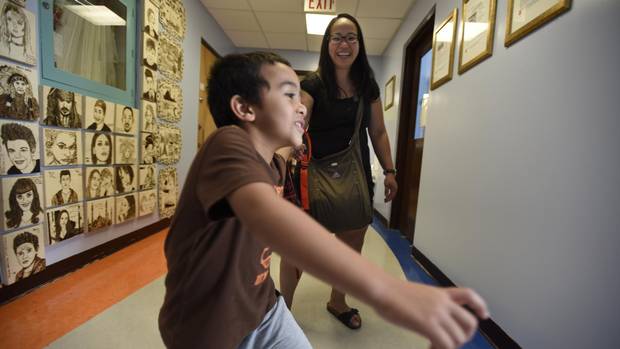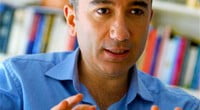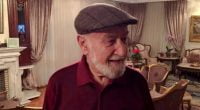Turkey’s Gulen crackdown hits Canada

Date posted: October 1, 2016
Patrick Martin
A crackdown on Gulen followers in Turkey has spilled into Canada, creating a deep divide in the Turkish community in this country.
A delegation from Turkey recently visited Canada to urge the closing of the Nile Academy, a private Toronto school that follows the teachings of Fethullah Gulen, a 75-year-old preacher whom Turkish officials accuse of masterminding an attempted coup d’état on July 15. Enrolment at the school has plummeted – down to 300 students from 500.
Efforts in Canada by Turkish authorities and supporters of President Recep Tayyip Erdogan have made life miserable for Gulen followers here, many say.
They have been made unwelcome in mosques and restaurants frequented by Turkish-Canadians, and they have been cursed and protested against by fellow citizens.
In Turkey, hundreds of Gulen schools have been shut down, and thousands of people have been rounded up, dismissed from positions in the military, police, judiciary and other government offices. The arrests include two Canadians with dual citizenship who are still being held in Turkey.
Prime Minister Justin Trudeau raised their cases on the sideline of September’s G20 summit, telling Turkish officials that he hoped the men would at least receive consular visits from Canadian representatives.
Many Turkish-Canadians are feeling frightened these days.
“Good,” said Erdeniz Sen, Turkey’s consul-general in Toronto, who has visited several mosques and community centres in southern Ontario sounding the alarm against what he calls the “Gulen terrorist organization.”
“They [the Gulenists] tried to overthrow the democratically elected government of Turkey. That’s unforgivable,” Mr. Sen said.
But Mr. Gulen denies involvement in the attempted July putsch that lasted but a few hours and left more than 200 dead. The elderly preacher left his native Turkey in 1999 to live in self-imposed exile in Pennsylvania after running afoul of previous anti-Islamic regimes.
An author and former imam, Mr. Gulen began an educational movement known as Hizmet in the 1960s. His writings emphasize not Islam, as many assume, but the importance of education and the value of cultural diversity. The success of his schools in turning out highly educated graduates allowed the movement to spread outside Turkey to several other countries, including Canada.
The Turkish government is looking to Canada and the U.S. for extradition of Mr. Gulen and his supporters but without luck so far. The tension has enveloped at least two Canadian families.
This summer, Davud Hanci, a Muslim chaplain working at federal correctional institutions in the Calgary area, was visiting family in northeastern Turkey with his wife, Rumeysa, and their two children, 8 and 9. On Aug. 2, Turkish authorities came for Mr. Hanci. The family was staying at the home of an uncle but police knew where to find them. They handcuffed Mr. Hanci and took his Canadian passport and Turkish ID. “The children were terrified,” Ms. Hanci said.
“My husband is a gentle man,” she said. “He is opposed to violence. But the local [Turkish] papers ran his picture and said he was an organizer of the coup. It is not true.”
Mr. Hanci remains in custody and his wife, who has since returned to Canada, has not heard from him since his arrest.
A similar nightmare happened to another Turkish-Canadian, Ilhan Erdem. He was also visiting Turkey with his wife, Hatice, and their two children, 9 and 9 months. The coup attempt delayed their return flight. When they tried to leave on July 25, Mr. Erdem was arrested at the airport in Istanbul.
“They tore all of our luggage apart,” Ms. Erdem said. “They have no right to do this to my family.”
She returned to Canada with the children and tried to arrange a lawyer for her husband.
Canadian consular officials were denied permission to see Mr. Erdem, a common occurrence when a country does not recognize a prisoner’s dual Turkish-Canadian citizenship.
Ms. Erdem eventually found a lawyer who learned that Mr. Erdem had already been tried and found guilty of being a leading member of the coup organizers.
“My husband is innocent,” Ms. Erdem insisted. “Fifteen years in Canada and he’s not even had a parking ticket.”
Other Canadians, who were not in Turkey at the time of the coup, are feeling unease.
One person in Montreal associated with a Gulen organization described how a visibly angry man came to his door one evening to tell him to take down the Turkish flag at the front of his house; that he was a traitor and had no right to wave it.
“When I turned on the recorder in my cellphone [to record the man’s abusive behaviour], he tried to grab it from me and we scuffled,” said the Gulen follower who insisted, as did many of the people interviewed, that his name not be revealed for fear of further repercussions.
“This is a small community,” the victimized man said, referring to Montreal’s Turkish community. “They know who we [the Gulen followers] are. It’s all very unsettling.”
In Ottawa in September, several dozen pro-Erdogan protesters, many bused in from Toronto, turned up at the annual Turkish festival put on by the local Gulen organization. Police kept the protest group at bay, but the placards and shouting denouncing the Gulen followers as terrorists disrupted the spirit of the event.
A number of Turkish academics, who were visiting Canada at the time of the coup, said they dare not return home because they teach at a Gulen-funded institution. They will stay as long as their visas allow and may seek refugee status after that.
Lorne Waldman, a Toronto immigration lawyer, has handled close to 20 cases of Turks stranded in Canada who have sought asylum since the July 15 coup. “Not one has been refused,” he said. “The Immigration and Refugee Board of Canada takes it as a given that Turks affiliated with Gulen will be at risk if they return to Turkey.”
At Mustafa’s restaurant in Toronto, one of the Turkish community’s most popular eateries, the owner said that people are coping. He estimated that “about 80 per cent of the community” sides with the current Turkish government and they continue to eat at his establishment.
What about the other 20 per cent?
“It’s better if they stay away,” he said.
Source: The Globe and Mail , September 30, 2016
Tags: Canada | Military coups in Turkey | North America | Persecution of Hizmet by Erdogan |
























